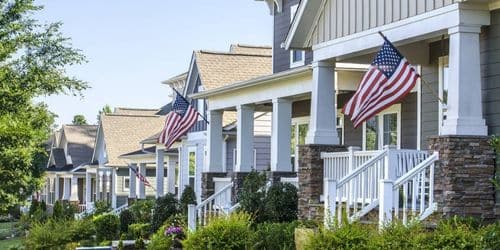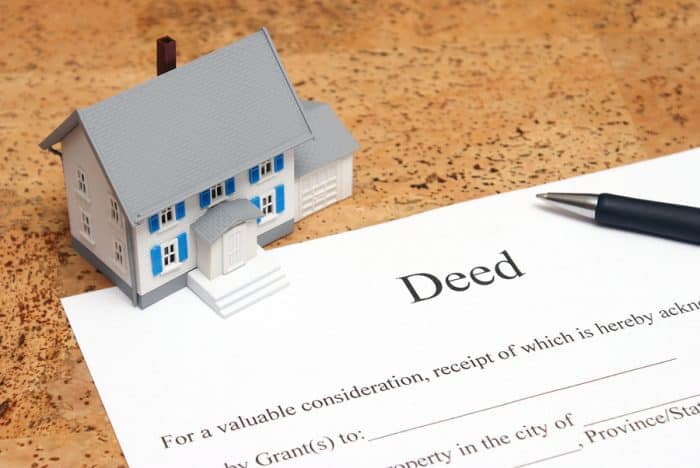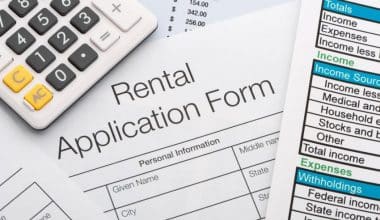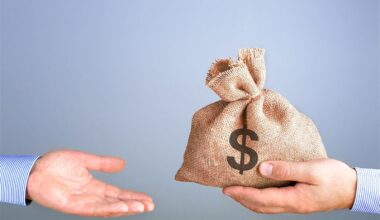If the demand and supply theory you learned in high school is still a mystery to you, perhaps the United States Housing Bubble saga will enlighten you. What exactly is the Housing Bubble and why does it concern economics and financial experts so much? Not to worry, we’ve got you covered.
In this article, we shall uncover everything you need to know about the United States housing bubble in detail so that, by the end of this piece, your knowledge of demand and supply will be sharpened. Let’s dive in.
Housing Bubble
Also known as a real estate bubble, this is a coinage that expresses a lot that can happen in the housing sector where emotions, speculation, inflation, and other economic parameters play out in the creation of this phenomenon.
Like most economic jerks, the housing bubble assumes the same procedure only this time the housing sector experiences more of a jumpy start.
It starts with a mortgage offer with low interest, this bait then drives the demand for housing to an all-time high, which is then accompanied by a gradual increase in the price of housing that eventually plummets when few houses are chasing larger demands.
As easy as this explanation seems, a lot goes on as an aside because while demand for housing might be high, other factors like loose lending, exuberant spending, and speculation go a long way to determine the extent of this bubble.
Other causes for the housing bubble are listed in the next section
What Causes the Housing Bubble?
One major cause of a bubble is the artificial scarcity created by the value of most mortgages, which could result in panic buying and increased demand for housing, which then drives the price of housing eventually creating a bubble.
When Speculators sense that the value of a residence could be worth more than what it is selling for at the moment, they could go in and acquire a portion and wait till the price keeps rising before selling out on their shares, this action makes the housing bubble spree continue.
Add that to the interest rate obtainable in buying a residential apartment and you have another cause for a housing bubble this happens when the rate of interest is low low-interest interest rate act as bait to make would be homeowners buy a residence since the cost of the mortgage payment plus interest may be something they can afford, and if many homeowners subscribe to this offer, the price increases at the end creating a bubble.
Lastly, if the demand for mortgage and housing units surpasses what the supply provides, a bubble is created by the skyrocketing price.
Bubbles affect generally every sector- one time in the early 2000s, the dot com bubble created a wave that had Speculators and investors buying shares in most IT firms, even low-end ones that have never published their earnings.
The result saw the stocks plummeting leaving shareholders to count their losses, thanks to the Bubble.
Real Estate Bubble
The real estate bubble is no different than the housing bubble discussed above, in fact, they both represent the same concept
The only difference to this bubble is in the type it affects (real estate in this case), aside from that the same factor as with increased patronage, and low supply of housing units, the deregulation of the sector can create a bubble as well.
Is the US Housing Market in a Bubble?
Unlike the sporadic fluctuations in the stock and equity Market, a bubble could last a long time before settling into normalcy. This is because the investment involved in acquiring a building coupled with the time frame in setting up a housing unit is nothing compared to the latter mentioned.
As of 2007 lasting through 2010, the US experienced a bubble that had major cities and states become hotcakes for investors and would-be homeowners, thanks to the FHA’s decision in deregulating the housing sector, the bubble in the housing sector in the year witnessed a lot of happenings.
First, investors had a swell time waging into the rising price of housing units while the interest rate was something worth paying for house aspirants, estate firms enjoyed massive patronage and with current economic activities, it seemed the bubble wasn’t gonna burst.
It was in the late month of 2008, the demand for housing units began to witness a sharp drop, and the once bubbling industry began to stand on shaky feet, thanks to factors that would have been preventable.
A different section on what spurred the housing bubble burst would be explained as the article progresses, but saying that the US is witnessing another housing bubble may be too soon to decide.
With the government intervention to prevent a repeat of previous history, and stringent measures put in place to curtail sharp practices by real estate providers, a bubble is nowhere in sight as it stands.
What is a Housing Bubble?
A short-term condition where housing price is overvalued due to increased demands and limited supply until the latter happens and the former takes precedence leading to a downfall in housing price.
This should not be confused with the term hot cake sales when it comes to the housing industry.
A hot cake sale is a situation where the price of a housing unit increases as a result of demands and with a presence or corresponding availability of the said housing. In this case, the housing unit is available and would only go to the highest bid.
Different from the housing bubble where demand chases less supply and eventually leads to an indiscriminate increase of housing units.
A housing bubble works on the premise of having limited supply while increasing the price for sales.
Housing Bubble Burst
While there is a bubble, there is also a bubble burst and when it comes to the housing sector, it is no different, we take a look at what a housing bubble burst is about.
When the factors fuelling the hype following an increase in housing prices reach a climax, there’s bound to be a burst forthcoming, and this happens when these factors fail to perform as they did previously.
A housing burst is a condition where the market reverses such that an increase in the interest rate of housing units pushes the demand for these assets below normal, thereby creating a sharp drop in the price of the housing unit. This however is one side to the coin.
A housing burst could also mean that the initial value of the house has been bought and the demand for it becomes low such that the once high-valued houses now sell for something far below the start price.
One big cause for a housing burst is the reverse effect of a house value falling due to low demand. Other reasons could be the increase in interest rates, shortchanging of housing unit supplies, and excessive mortgage lending chasing fewer housing units. All this could metamorphose into a big burst.
In a housing burst, parties involved in the transaction and the large economic society feel the brunt of this downside which could last for a long time. Like two sides of a country, every housing bubble leads to a housing burst, it’s just impossible to separate.
What Caused the Housing Bubble Burst?
As a result of the sharp practices of most mortgage providers, the housing bubble burst in the US became unavoidable.
The primary action that led to this mishap was the artificially inflated price of these mortgage institutions.
Think of it like this, I walk up to you as an estate agent promising affordable housing and then go to about three or four persons with the same offer, knowing fully that maybe only a unit is available.
The resultant effect of my actions could lead to this prospect bidding a value way beyond the benchmark price, hence because of the scarcity of this building, I have been able to create an artificially inflated price that t the end this prospect decides to pay for it, could lead to a sharp drop upon acquisition.
The analogy above gives a classic description of what most real estate companies tend to do and how this eventually leads to a drop/burst in the bubble. When this is continuously done, this could spark up a government intervention that could mean charging high interest on these mortgages which in the end drives the value of the price further down.
Many things happen when there is a burst in a housing bubble, the next paragraph covers in detail what the effect of a bubble crash could yield as well as what a bubble crash is.
Housing Bubble Crash
The worst form of a housing bubble burst is a crash, and by a crash, we mean a total liquidation of the housing company. Here is what it means:
When prices drop continuously, the real estate loses out on subscribers which could affect their earnings, and in the end, have them pack up. Sadly many flourishing real estate companies have seen their early demise from the sector due to this.
A housing bubble crash is the final blow that affects a company suffering a downside to their housing offer, making investors, and prospective homeowners pull out from subscribing to their housing plan.
This crash has a colossal effect not only on the company but on the economy, and this is further depicted in the next section
What Happens When the Housing Bubble Crashes?
Among the many things that happen when a housing bubble crashes, the list below is the first take signs of the effect of a housing bubble crash:
- Household income Suffers
- Lending Institutions tighten lending.
- Investors make loss
- Economy suffers
#1. Household Income Suffers
Imagine the pain of paying for an asset you acquired when interest was low and suddenly having to pay a high-Interest thanks to the shifting real estate market conditions, then you would have a classic description of your fixed income suffering.
Say Mr. A bought a mortgage plan for $400000 and had to pay an interest of 2% per annum while he earned a basic salary of $100000 then a little shake in the mortgage company he is subscribed to, suddenly had his interest charged to 5% while still receiving the same income. That alone has crashed his income savings big time.
#2. Lending Institutions tighten Lending
Loans and other credit offering institutions would be cautious when giving out loans to investors who request to pay for a mortgage experiencing a crash, this is because they don’t want to run into bad debt when it comes to the recovery of the loan.
Not lending to investors, this in a way would affect their portfolio and their forfeiture of the said asset they wish to acquire.
#3. Investors make losses.
Like the homeowner paying for a mortgage that is losing value and yet accrues high interest, investors are not left out in the mix.
An investor who purchased a subscription intending to sell when housing price increases would meet a dead end when instead of price skyrocketing begins to plummet, worse if it was a loan he used in its purchase.
#4. Economy suffers
When government intervention to rescue housing companies from a crash involves using the taxpayer’s money to salvage their mess, then a real economic standstill is about to happen.
When taxpayers have to pay for recuperating a dying sector, their purchasing power for other items they want drops, and when this happens, sellers experience short sales which would affect the general economic activity of any country.
So it isn’t only a two-party thing, the effect of a housing bubble crash hit hard on everyone.
I presume you are thinking that a housing bubble isn’t all goody-goody? Before jumping to a conclusion, the next section might give you a rethink.
Is a Housing Bubble Good?
A bubble is a bittersweet taste to the economic tongue of any country in that on one hand, it encourages home ownership and on the other hand if not regulated could lead to a massive economic crunch. The thing about a housing bubble is the management during a burst, actions taken to avoid a crash would do well to make it something worth having.
Conclusion
Still, lost on the theory of demand and supply? I don’t think so.
Here it is, everything you need to know about the housing bubble in the US and beyond, plus a detailed explanation of the cause and an overview of this concept. As expected, a careful study of this article adds to your knowledge of basic economic theory. For now, Adios!






